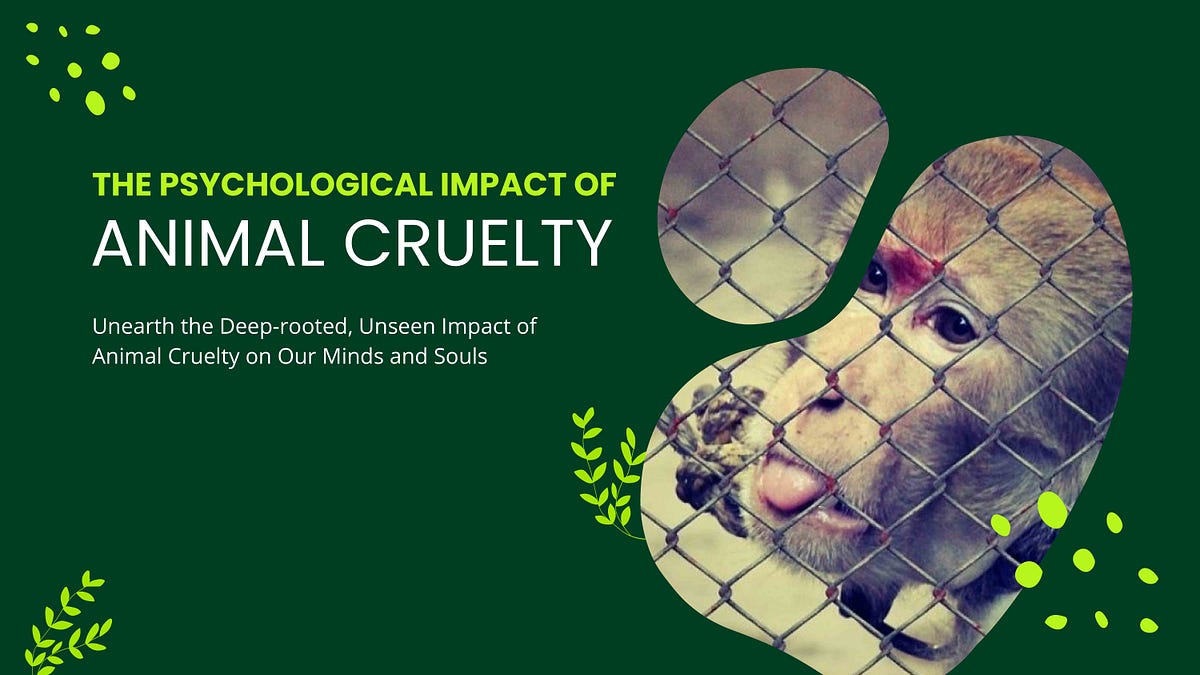The discussion surrounding the ethics of killing animals has long been a contentious issue, provoking intense debates that cross into territory as diverse as philosophy, ethics, and psychology. Is killing an animal an unequivocal act of cruelty? Or are there circumstances where it can be perceived differently? Understanding the psychological nuances behind this question opens the door to a broader examination of morality, empathy, and societal norms.
To dissect this topic, one must first recognize the variegated perceptions people hold regarding animals. At one end of the spectrum lie the animal rights advocates, who vehemently oppose any form of animal suffering. They argue that sentient beings possess an intrinsic right to live free from harm and exploitation. On the opposite end, some individuals may view animals merely as resources, thereby justifying their killing for purposes such as food, research, or other human needs. This division breeds conflicting emotions and ethical considerations that permeate public discourse.
One significant psychological facet to consider is the concept of anthropomorphism—the attribution of human characteristics, emotions, and intentions to animals. This psychological phenomenon shapes our connections with animals and informs how we perceive their suffering. For instance, pet owners typically see their dogs or cats as family members, attributing them with emotions akin to human sentiments—love, joy, and even sadness. The pain caused by losing a pet is often felt deeply; the emotional bond blurs the lines between human and animal suffering. Thus, when discussing animal killing, the lens through which one views animals significantly determines perceptions of cruelty.
Furthermore, moral disengagement plays a pivotal role in the justification of killing animals. This psychological mechanism allows individuals to detach from the ethical implications of their actions, often leading to cognitive dissonance. For example, individuals who consume meat may adopt rationalizations to absolve themselves of guilt. They might argue the necessity of animal protein for nutrition or assert that the animals are raised in humane conditions. While these justifications mitigate feelings of remorse, they do not eliminate the underlying ethical considerations of animal welfare, raising the question: when does human necessity trump animal rights?
Experience also shapes our understanding of animal death. In certain cultural contexts, the killing of animals for food is deeply ingrained. For example, traditional hunting practices in various indigenous cultures celebrate a symbiotic relationship with nature, where taking an animal’s life is interwoven with rituals of respect and gratitude. Here, the act of killing is often surrounded by a cultural narrative that reinforces respect for the animal’s life, as opposed to mere exploitation. This dichotomy illustrates how subjective morality can be and emphasizes the importance of context when examining the ethics of animal killing.
Additionally, the relationship between empathy and animal death is crucial. Research indicates that empathetic individuals are more likely to oppose animal cruelty. This empathy often stems from personal experiences—such as interactions with animals, exposure to animal welfare education, and even media portrayals of animal suffering. Those who engage with animals, whether through companionship or through professional roles such as veterinarians or animal behaviorists, may develop a heightened sense of empathy. This emotional intelligence enhances their ability to discern the complexities surrounding animal death and suffering.
Nevertheless, the act of killing can be influenced by non-empathetic factors such as desensitization. Repeated exposure to violence, including the killing of animals—especially in the contexts of hunting or industrial farming—can dull the moral sensitivity of individuals. The normalization of violence toward animals can foster a mindset where killing is seen as an everyday occurrence, distancing the act from any emotional ramifications. This phenomenon poses significant moral implications, suggesting that a society desensitized to animal death may become increasingly indifferent to not just animal suffering but also broader issues of empathy and compassion.
Moreover, the concept of necessity cannot be understated. Ethical frameworks such as utilitarianism advocate for the action that results in the greatest good for the greatest number of beings. Here, proponents might argue that killing animals for sustenance is justified by the benefits it provides to human communities. However, as societal values shift toward animal welfare, and alternatives such as plant-based diets gain traction, this notion of necessity is continually questioned. The growing availability of vegan and vegetarian options forces a reevaluation of traditional perspectives on animal killing, suggesting a potential paradigm shift where cruelty is not an acceptable byproduct of necessity.
In conclusion, the query of whether killing animals is inherently cruel cannot be answered with a blanket statement. It is a multifaceted issue that requires an understanding of psychological mechanisms, cultural contexts, empathy levels, and ethical considerations. The question invites individuals to engage in self-reflection regarding their values and beliefs about animals. It challenges us to grapple with the complexities of our relationships with other sentient beings and inspires an exploration of how societal norms can evolve over time. By fostering conversations around empathy, ethics, and cultural narratives, society can begin to shift perspectives and hopefully, inch closer towards a more compassionate world in which cruelty is neither an accepted norm nor a necessary evil.








